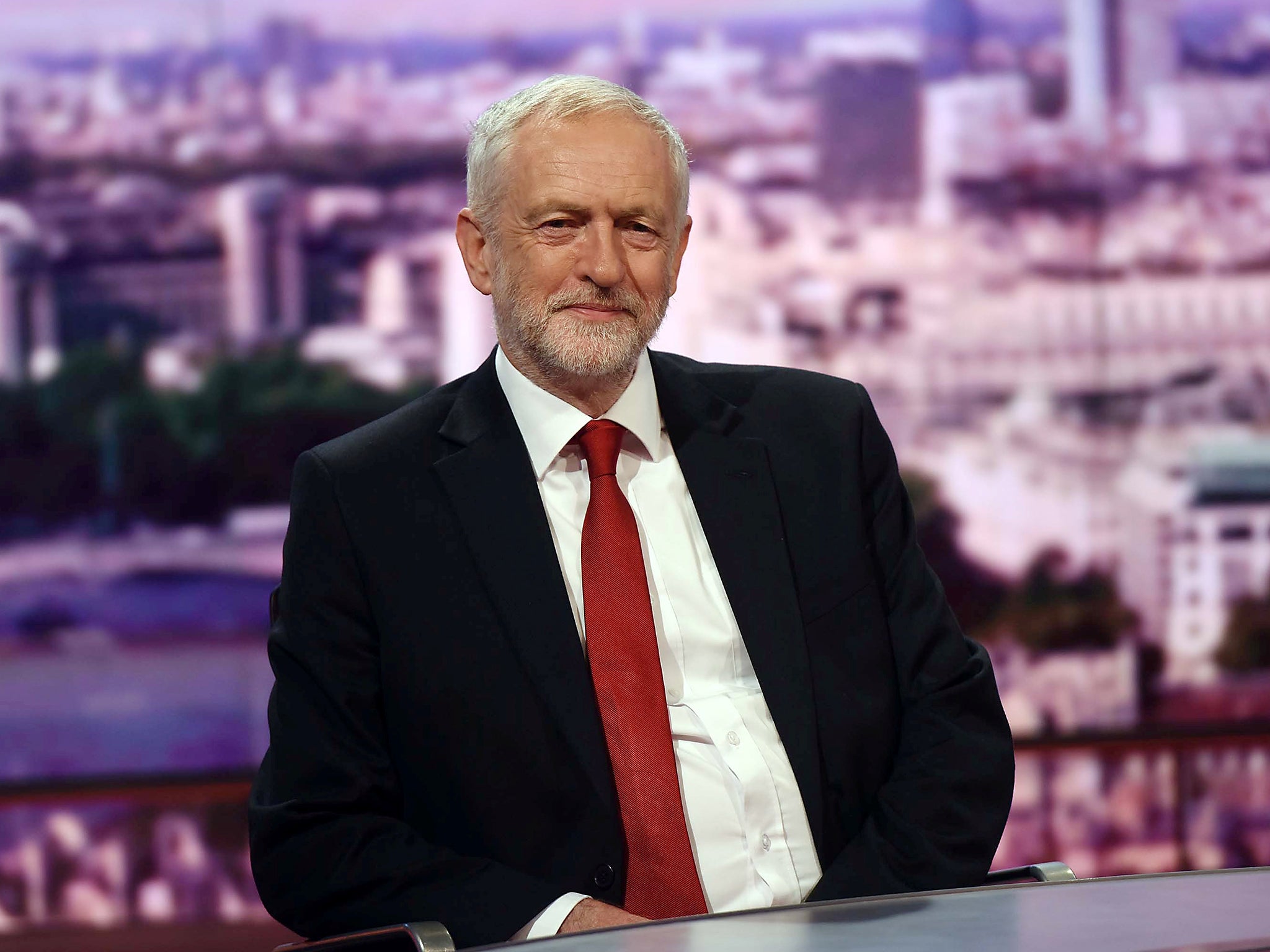The secret to Corbyn's success was rejecting PC culture as much as he rejected rabble-rousing populism
The fact that such an approach amounts to no less than a major shift in our political space is a sad sign of the times we live in. But it shows where we can go from here


Your support helps us to tell the story
From reproductive rights to climate change to Big Tech, The Independent is on the ground when the story is developing. Whether it's investigating the financials of Elon Musk's pro-Trump PAC or producing our latest documentary, 'The A Word', which shines a light on the American women fighting for reproductive rights, we know how important it is to parse out the facts from the messaging.
At such a critical moment in US history, we need reporters on the ground. Your donation allows us to keep sending journalists to speak to both sides of the story.
The Independent is trusted by Americans across the entire political spectrum. And unlike many other quality news outlets, we choose not to lock Americans out of our reporting and analysis with paywalls. We believe quality journalism should be available to everyone, paid for by those who can afford it.
Your support makes all the difference.The unexpected electoral success of the Labour Party has put to shame the predominant cynical wisdom of the connoisseurs, even those who pretended to sympathise with Corbyn and whose preferred excuse was: “Yes, I would vote for him, but he is unelectable, the people are too manipulated and afraid, the moment is not yet right for such a radical move.”
Recall Tony Blair’s claim that under Corbyn the Labour Party is irredeemably marginalised, no longer a potential party of government. The hypocrisy of such statements is that they mask their own political stance as a resigned insight into the objective state of things.
There are, of course, problems and doubts that persist. One should not only confront the limitations of Corbyn’s programme – does it reach beyond the old welfare state, would the Labour government survive the onslaught of global capital? At a more radical level, one should not be afraid to raise the key question: is electoral victory still the key moment of a radical social change? Do we not witness the growing irrelevance of our electoral processes?
But what matters beyond the actual result is the deeper significance of the (relative) success of the Labour Party. This success amounts to a major ethical and political shift, a strong move against the vulgarisation of our public speech. The problem here is the one that Hegel called Sittlichkeit: mores, the thick background of (unwritten) rules of social life, the thick and impenetrable ethical substance that tells us what we can and what we cannot do.
These rules are disintegrating today: what was a couple of decades ago simply unsayable in a public debate can now be pronounced with impunity. Trump can talk about Melania’s flatulence and pronounce that “torture works”, Netanyahu can claim that Palestinians caused the Holocaust, European populists can claim that the flow of refugees is orchestrated by Jews, and so on and so on.
But why talk about politeness and public manners today when we are facing what appears to be much more pressing “real” problems? In doing it, do we not regress to the level of Thomas De Quincey’s famous quip about the simple art of murder: “How many people began with unleashing terror and economic catastrophes, and ended up with behaving badly at a party?” But manners do matter – in tense situations, they are a matter of life and death, a thin line that separates barbarism from civilisation.
Back in the 1960s, occasional vulgarities were associated with the political left: student revolutionaries often used common language to emphasise their contrast to official politics with its polished jargon. Today, vulgar language is an almost exclusive prerogative of the radical right, so that the left finds itself in the surprising position of defender of decency and public manners.
Unfortunately, the leftist-liberal public space is also more and more dominated by the rules of tweet culture: short snaps, retorts, sarcastic or outraged remarks, with no space for multiple steps of a line of argumentation. One passage (a sentence, even part of it) is cut out and reacted to. The stance that sustains these tweet rejoinders is a mixture of self-righteousness, political correctness and brutal sarcasm: the moment anything that sounds problematic is perceived, a reply is automatically triggered, usually a PC commonplace.
Although critics like to emphasise how they reject normativity (“the imposed heterosexual norm”, and so on), their stance is one of ruthless normativity, denouncing every minimal deviation from the PC dogma as “transphobia” or “fascism” or whatsoever. Such a tweet culture which combines official tolerance and openness with extreme intolerance towards actually different views simply renders critical thinking impossible. It is a true mirror image of the blind populist rage à la Donald Trump, and it is simultaneously one of the reasons why the left is so often inefficient in confronting rightist populism, especially in today's Europe. If one just mentions that this populism draws a good part of its energy from the popular discontent of the exploited, one is immediately accused of “class essentialism”.
It is against this background that one should compare the Conservative and the Labour electoral campaigns. The Conservative campaign has reached a new low for the political battled in the UK: scaremongering attacks about Corbyn as a terrorist sympathiser, of the Labour party as a hive of anti-Semitism, and all of this culminating in Theresa May joyously promising to rip off human rights – a politics of fear if there ever was one. No wonder Ukip disappeared from the scene: there is no need for it, since May and Johnson have taken over its job.
Corbyn refused to get caught in these dirty games: with an outspoken naivety, he simply addressed the main issues and concerns of ordinary people, from economic woes to terrorist threat, proposing clear countermeasures. There was no rage and resentment in his statements, no cheap populist rabble-rousing, but also no politically correct self-righteousness. Just addressing ordinary people’s actual concerns with a common decency.
The fact that such an approach amounts to no less than a major shift in our political space is a sad sign of the times we live in. But it is also a new confirmation of old Hegel’s claim that, sometimes, naïve outspokenness is the most devastating and cunning of all strategies.
Join our commenting forum
Join thought-provoking conversations, follow other Independent readers and see their replies
Comments